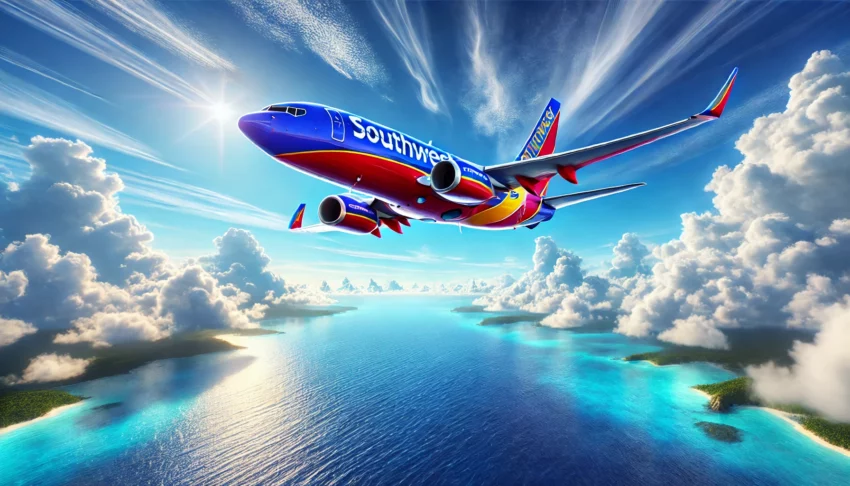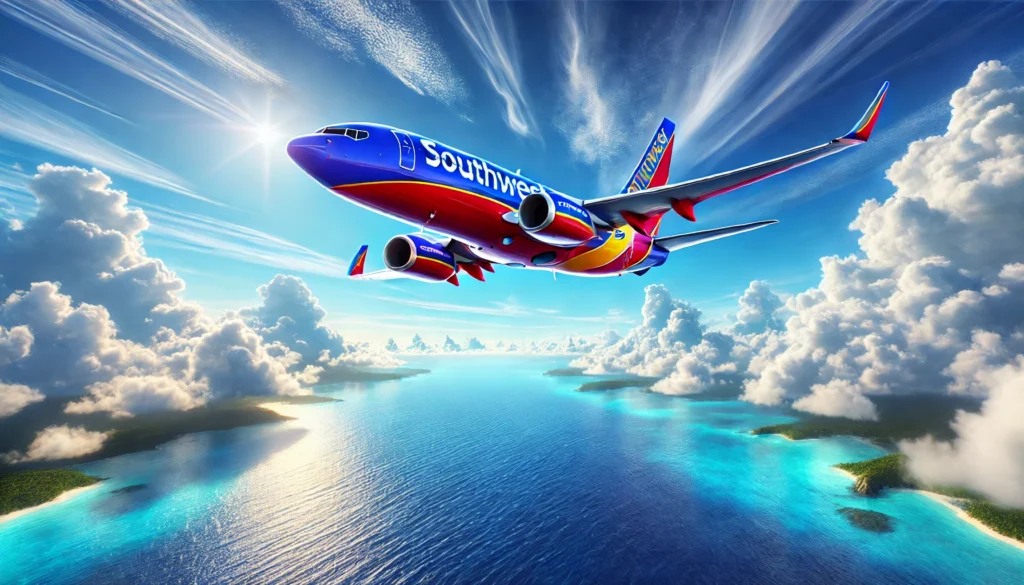Friday, May 16th, 2025

Southwest Airlines, a leading player in the US domestic aviation market, will announce its latest financial and strategic outlook at the Wolfe Research Global Transportation & Industrials Conference on May 22, 2025.
As tourism rebounds around the world and demand for air travel surges, airlines like the Southwest play a key role in enabling a vibrant local economy by connecting communities, expanding market access and providing exceptional value to tourists. This upcoming presentation will provide investors, analysts and tourism stakeholders with insights into how Southwest's strategy will support a broader tourism recovery and growth.
Promoting tourism through aviation innovation
Southwest Airlines' business model focuses on low-cost, high-frequency services linking over 100 destinations, promoting the domestic tourism economy by making travel more accessible and affordable. As airlines focus on point-to-point connectivity, their reliance on key hubs is reduced, which opens up secondary education and tertiary markets for visitors, including leisure tourists, business travelers, visiting friends and relatives (VFRs).
By presenting at the Wolfe Research Conference, Southwest will highlight innovations in fleet modernization, technology integration and customer service that will increase operational efficiency and passenger satisfaction. These initiatives will allow for a smoother and more reliable travel experience, and will directly impact tourism by encouraging repeated visits and positive traveler language.
Economic impact and market expansion
Southwest Airlines' network is an important artery for tourism in the United States, supporting millions of jobs in hospitality, retail and transportation. Continuing investments in expanding airline routes and improving service quality create economic ripples that go far beyond the airport.
Future webcasts are expected to outline how Southwest executive vice president and CFO Tom Doxey will be able to outline how capital expenditures on new aircraft and digital platforms will drive capacity and fuel growth in underserved markets. Such investments will lead to increased visitor numbers, increased spending on the local economy, and amplifying the marketing reach of destination promoters.
For example, the expansion of Southwest to medium-sized cities will increase the region's tourism competitiveness by reducing travel barriers and diversifying visitor profiles. This democratization of aviation access will support community revitalization and promote sustainable tourism growth.
Enhance the traveler experience to increase tourism demand
Southwest has defended its long-standing customer-first policy, from flexible ticketing options to robust loyalty programs. Future presentations from the airline will also address continuous efforts to improve travellers' travel, from the booking and check-in process to onboard amenities for today's high-tech-savvy tourists.
In a competitive market where travelers weigh value and experience, Southwest's investment in user-friendly digital tools and personalized communications can help differentiate its offerings. By reducing friction and increasing convenience, airlines will develop stronger tourism demand and foster loyalty at destinations.
Marketing synergy and tourism collaboration
Southwest's involvement at the Wolfe Research Conference emphasizes active communication with airline investors and tourism stakeholders. Sharing strategic vision and operational updates promotes transparency and builds confidence among partners who rely on trustworthy aviation services to attract visitors.
The airline's network development is consistent with tourism marketing campaigns aimed at promoting trends in local destinations and emerging travel, such as empirical tourism and sustainable travel. Southwest's ability to adapt routes and schedules according to market signals supports dynamic destination marketing strategies and amplifies the resilience of the tourism sector.
Future view: Sustainability and innovation as pillars of tourism growth
The aviation industry is facing increased pressure to sustainably decarbonize and innovate. Southwest Airlines' strategic roadmap is highlighted during the webcast, but includes updating the fleet with more fuel-efficient aircraft and initiatives to reduce carbon emissions.
These sustainability commitments resonate strongly with environmentally friendly travelers and tourism markets, enhancing the attraction of destinations while meeting regulatory demands. By embedding green technology and operational efficiency, Southwest supports the viability of long-term tourism and aligns with global tourism development goals.
Key Points
Wolf's research presentation at Southwest Airlines highlights its role in enabling tourism growth through network expansion and operational innovation. Fleet modernization and technology upgrades will increase traveller experience and operational efficiency, support the local tourism economy, and support services to secondary and tertiary markets. Convenience. Airlines' strategic transparency promotes stronger partnerships with tourism stakeholders and investors. Resistance and economy are essential to Southwest's long-term tourism growth strategy.
The role of Southwest Airlines in tourism recovery after the pandemic
As global travel rebounds after the pandemic, Southwest's ability to provide affordable, reliable air connections is more important than ever. Airlines support tourism ecosystems by increasing the frequency of domestic destinations and improving service quality.
By continuing to evolve through innovation and customer focus, Southwest Airlines promotes a revival of a vibrant tourism economy, ensuring that communities across the United States remain accessible and attractive to millions of tourists each year.
Tags:Airline News, Austin, Austin Tourism News, Aviation Innovation, Dallas, North America, Southwest Airlines, Texas, Texas Tourism News, US, US Tourism News, Wolf Research



